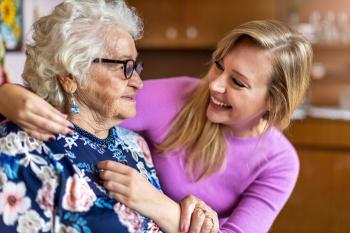What Happens to a Senior When They Stay Socially Isolated
December 28, 2022

Because it is more difficult for seniors to leave the home or connect with friends, senior citizens are at increased risk of social isolation. While problems with your social life may not seem as frightening as Alzheimer's illness or a heart attack, it may be just as lethal. Even with companion care at home a senior needs to get out of their house to socialize with others. It could save their lives. If they are socially isolated, they may suffer from adverse effects.
They May Become Depressed
Feelings of depression are a major side effect of not having friends or family to interact with. Seniors are more prone to suffer feelings of melancholy, apathy, sleeplessness, and other symptoms of depression if they are unable to spend time with friends and loved ones. Small acts of social connection, such as video conferencing with a family member or volunteering at a community group, may significantly lessen the risk of depression.
It Leads to Poor Lifestyle Habits
The elderly are more inclined to turn to destructive behaviors when they are isolated from others who provide them pleasure. Tobacco usage, poor diet, excessive drinking, and lack of exercise are all exacerbated by a lack of social interaction. Maintaining positive relationships with loved ones, both near and far, may help seniors prioritize their health and well-being.
They May Have Increased Stress
The stress hormone cortisol drops significantly after socializing with friends. Some temporary increases in cortisol are normal, but sustained elevations in this stress hormone may have serious consequences for your cardiovascular and neurological systems. Chronic stress brought on by social isolation may be remedied by doing something as easy as attending a weekly senior group for lunches and other activities. If your senior needs help to get places, this might be something companion care at home can help with.
They May Stop Caring for Themselves
Having friends and family who care about the senior's well-being is crucial to maintaining social connections. The senior may benefit from having others keep an eye on their health and alert the doctor if they detect any changes, such as sudden weight loss or a feverish look. When an elderly person lives alone and has a medical emergency, they are at increased risk of complications. If a senior is alone too often, they may stop caring for themselves or feel like no one else cares about their health and safety. Companion care at home can help a senior be more independent and take care of themselves.
Encourage Them to be Social
Even if you just call your senior once a week or facetime them, it can help limit the feelings of isolation. Companion care at home can help a senior stick to a routine. They can help get a senior to bingo, gym classes, and other fun activities to be surrounded by other elders. There are so many things a senior can do to keep social, you just have to help them find it. Being social can save their health and it is so important to keep an eye on.
If you or your loved one is looking for Companion Care at Home in San Mateo, CA, please call Familiar Surroundings Home Care.
Santa Clara County: (408) 979-9990
San Mateo County: (650) 353-9777
Santa Cruz County: (831) 480-3990


